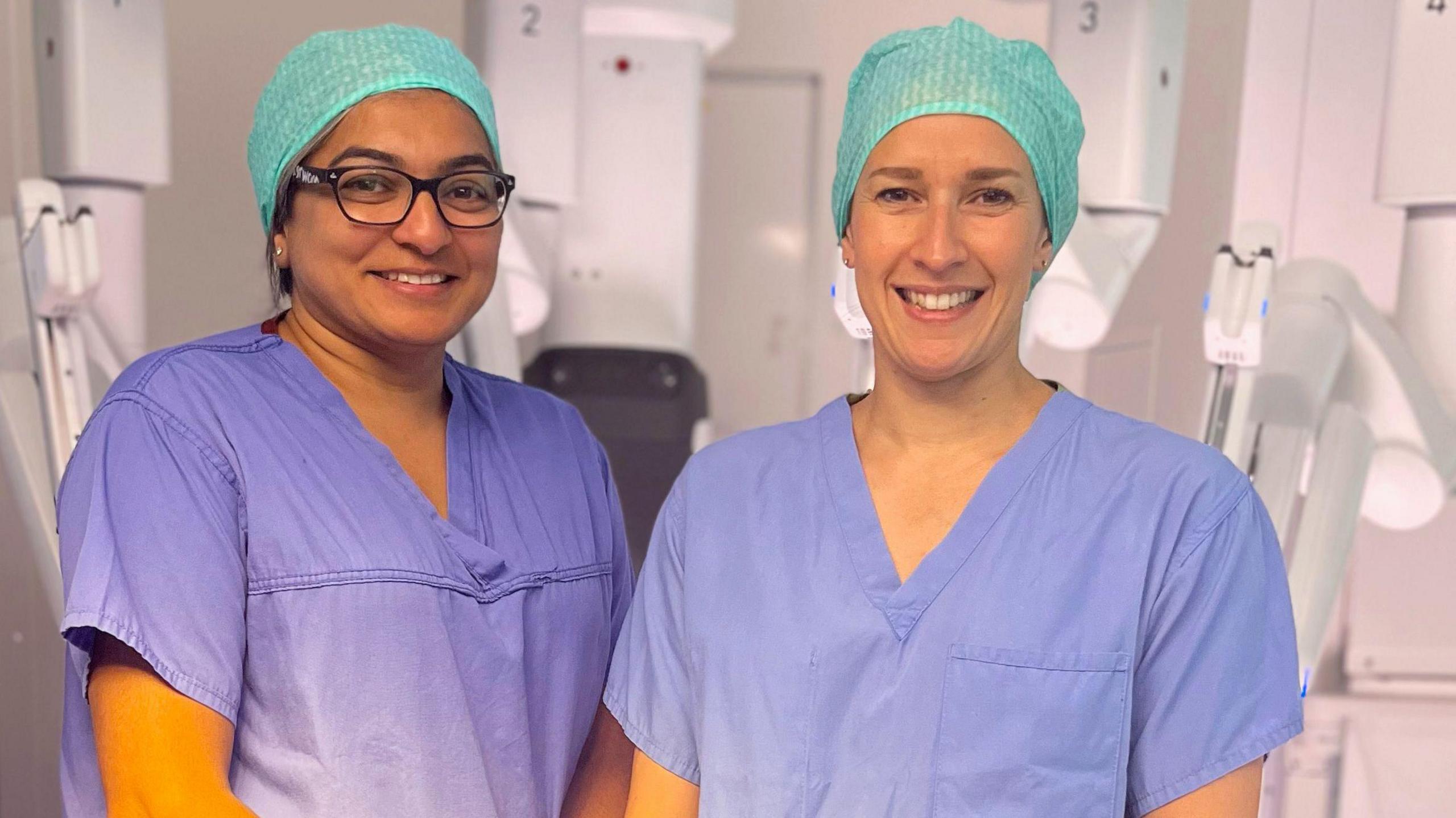Robots pioneered by hospital for on-the-day surgery
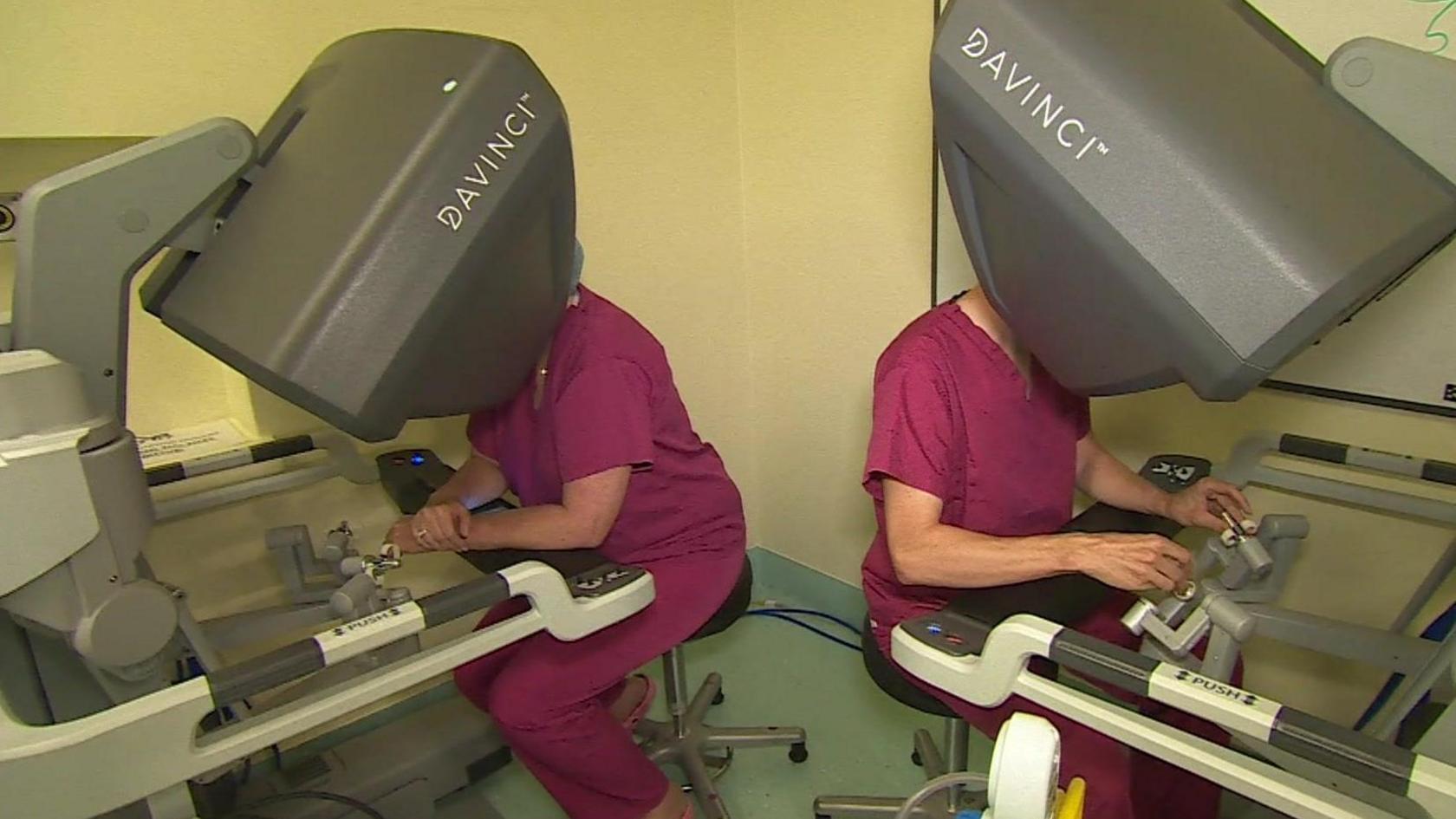
Surgeons use consuls to control and guide the robots holding the surgical instruments
- Published
A surgical robot is being pioneered in a Portsmouth hospital's day care unit.
The Da Vinci surgical system is being used at the Queen Alexandra (QA) Hospital in a bid to increase productivity for procedures, including hernias and gall bladder removal.
Surgeon Prof Jim Khan said it was proving a "valuable resource" with less trauma and quicker recovery times for patients, as well as greater efficiency for the hospital.
It is hoped the robotic-assisted surgery could enable staff to treat more patients with a wider range of conditions.
There are currently about 200 Da Vinci robots in UK hospitals, four of which are at the QA Hospital.
During an operation, the machine holds the instruments while the surgeon sits at a control console watching a magnified 3D view of the procedure.
It gives the surgeon a greater range of movement than the human wrist, meaning it is more precise and less invasive.
While robotic-assisted surgery has been used in the NHS over the past 20 years, this is thought to be the first time a day unit has its own programme and a robotic system permanently in place.
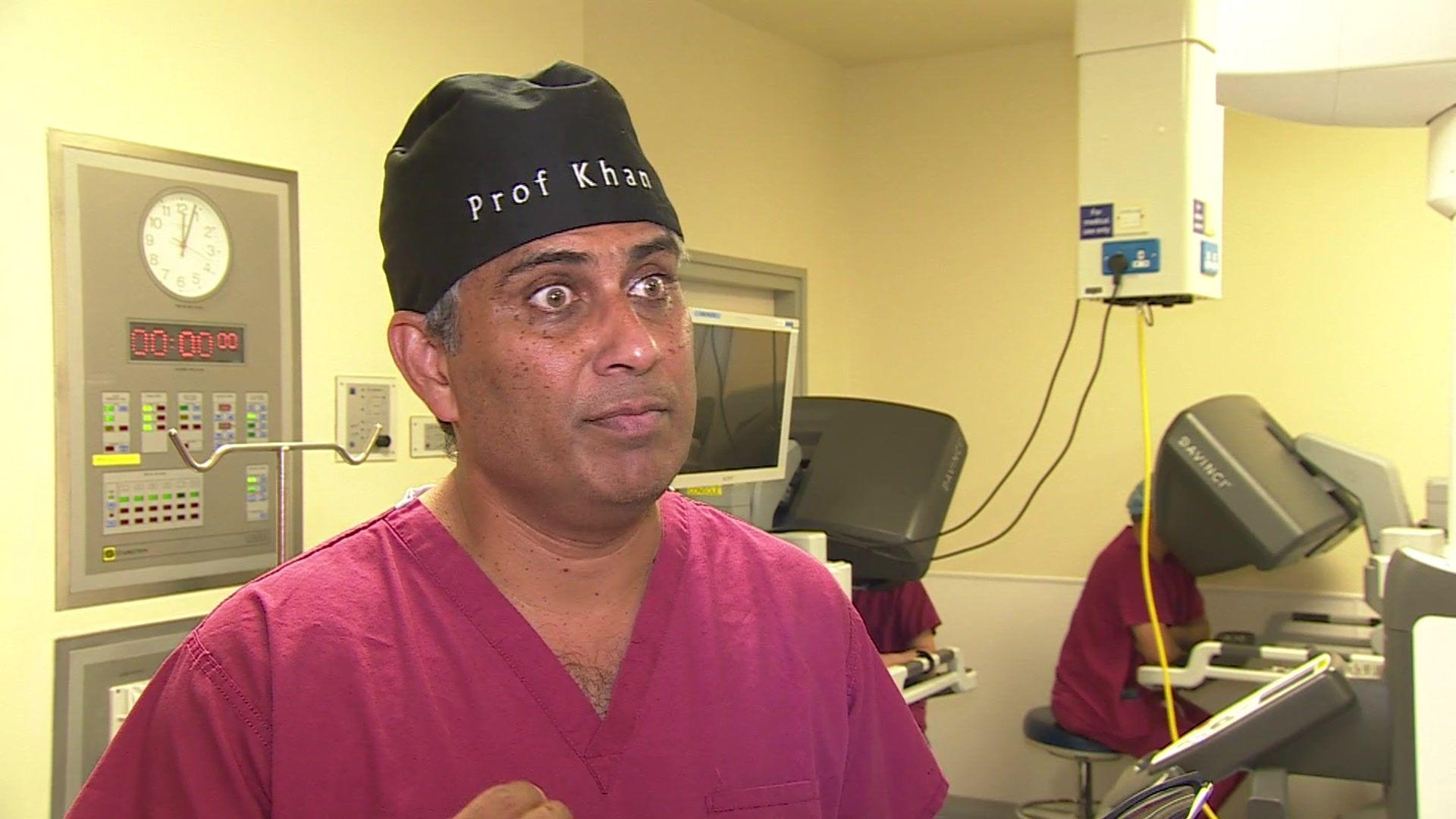
Prof Jim Khan is one of the surgeons using the robotic system at the QA Hospital
The first phase of the three-year programme has already seen all existing keyhole day case surgeries at QA converted to robotic-assisted surgery.
The trust is now taking it a stage further to treat more complex inpatients who require hospital beds.
It is seeing if it can convert them into on-the-day cases, with patients able to recover at home with monitoring.
Prof Khan, consultant surgeon at Portsmouth Hospitals University NHS Trust and chief investigator of the study, said the system had already delivered "better outcomes for patients" in main hospital theatres for cancer and benign procedures.
He believes using the technology in the day surgery practice could help them treat more patients, across more specialties and provide a valuable resource for safe training of surgeons and theatre staff,
It could "improve productivity across the wider hospital", he said.
Lyn Graham had her gall bladder removed using the robotic system earlier this year.
She was able to leave hospital less than eight hours after the operation.
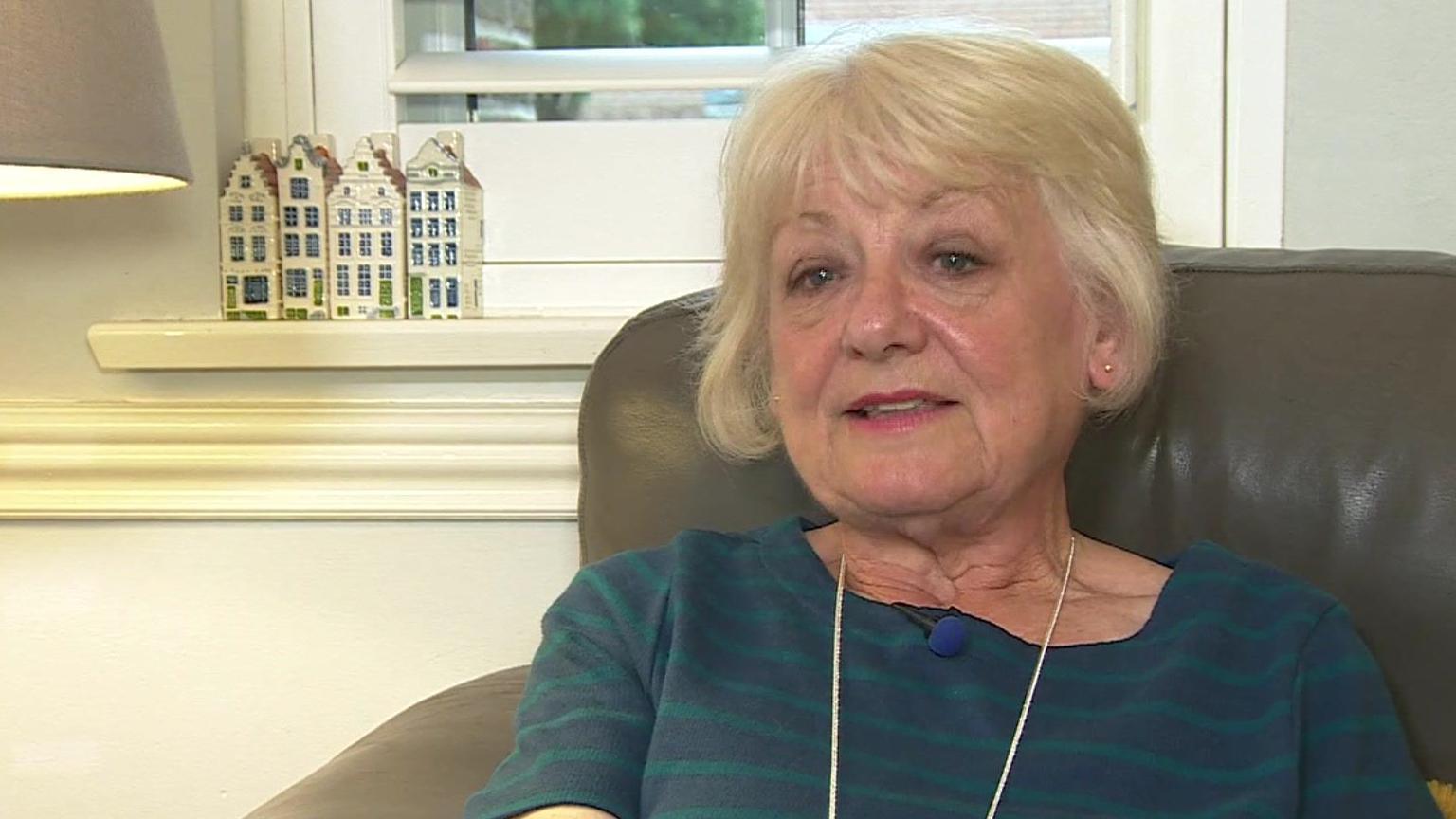
Ms Graham said she was surprised how quickly she recovered from her gall bladder removal
"It was surprising that I was not in any pain, I recovered very quickly," she said.
Ms Graham said that less than three weeks later she was "fine", adding: "I had the grandchildren and I was running around with them and we were taking them out.
"I was driving again, so I recovered way faster than I thought I would."
A study is assessing the impact of the programme at the QA Hospital on bringing down waiting lists and reducing the need for patients to stay in hospital.
The findings could lead to a wider roll out of robotic-assisted surgery across the NHS.
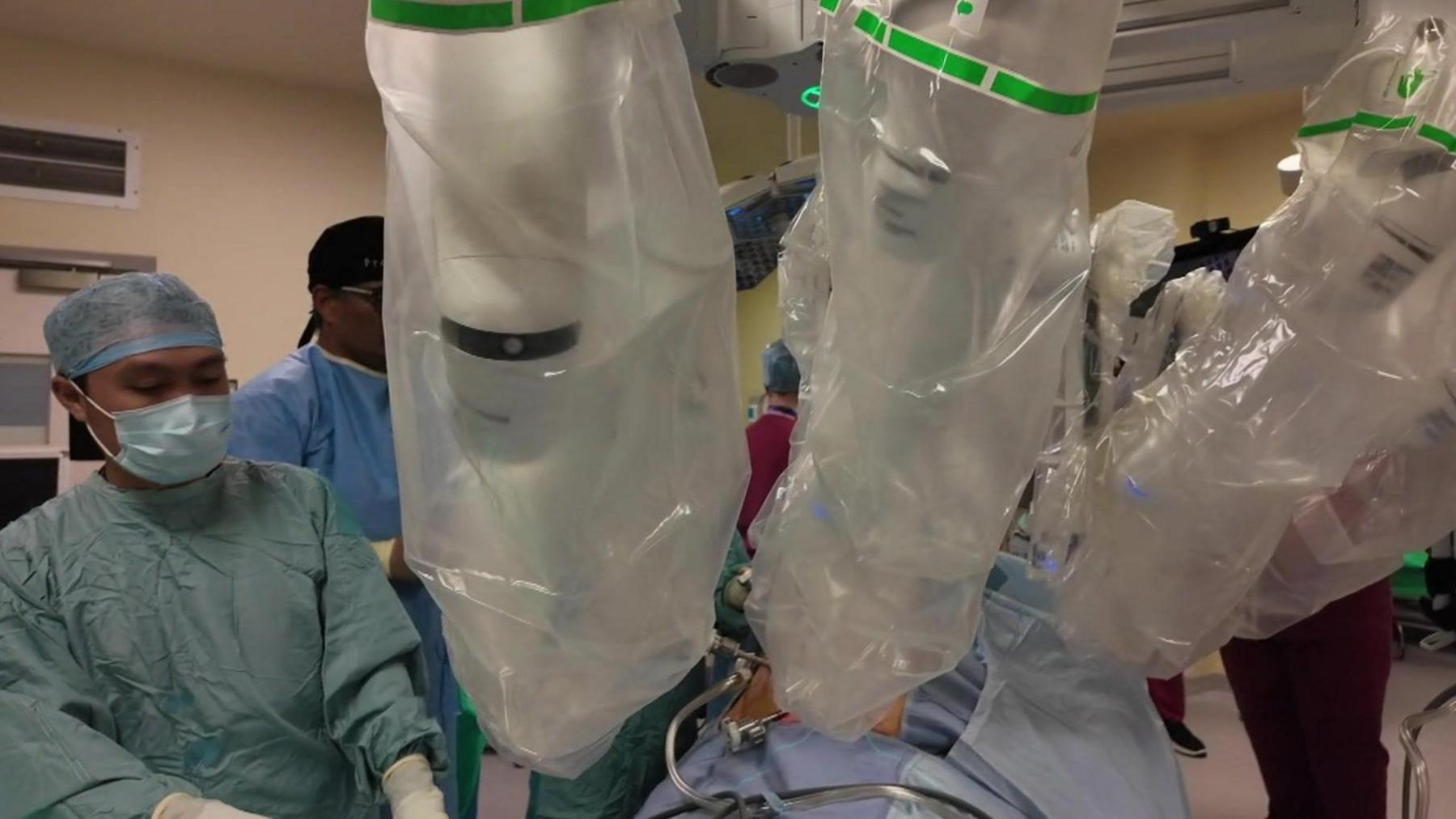
All existing keyhole day case procedures at the QA Hospital have been converted to robotic-assisted surgery
Get in touch
Do you have a story BBC Hampshire & Isle of Wight should cover?
You can follow BBC Hampshire & Isle of Wight on Facebook, external, X (Twitter), external, or Instagram, external.
See also
- Published31 August 2024
